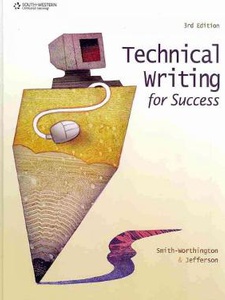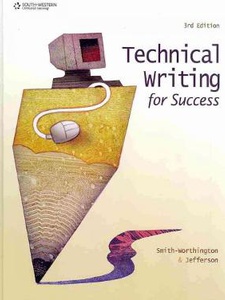apawha637
Вопрос по английскому языку:
Помогите завтра задавать
Find the English equivalents to these Russian word cjmbintiosn in Ex.78
— прошлым летом
— комфортабельный автобус
— много фонтанов
— удивительно видеть
— красивый город
— великий дворец

Трудности с пониманием предмета? Готовишься к экзаменам, ОГЭ или ЕГЭ?
Воспользуйся формой подбора репетитора и занимайся онлайн. Пробный урок — бесплатно!
Ответы и объяснения 1
plentence94
Last summer
Comfortable bus
Many fountains
Amazing to see
Beautiful city
Great palace
Знаете ответ? Поделитесь им!
Гость ?
Как написать хороший ответ?
Как написать хороший ответ?
Чтобы добавить хороший ответ необходимо:
- Отвечать достоверно на те вопросы, на которые знаете
правильный ответ; - Писать подробно, чтобы ответ был исчерпывающий и не
побуждал на дополнительные вопросы к нему; - Писать без грамматических, орфографических и
пунктуационных ошибок.
Этого делать не стоит:
- Копировать ответы со сторонних ресурсов. Хорошо ценятся
уникальные и личные объяснения; - Отвечать не по сути: «Подумай сам(а)», «Легкотня», «Не
знаю» и так далее; - Использовать мат — это неуважительно по отношению к
пользователям; - Писать в ВЕРХНЕМ РЕГИСТРЕ.
Есть сомнения?
Не нашли подходящего ответа на вопрос или ответ отсутствует?
Воспользуйтесь поиском по сайту, чтобы найти все ответы на похожие
вопросы в разделе Английский язык.
Трудности с домашними заданиями? Не стесняйтесь попросить о помощи —
смело задавайте вопросы!
Английский язык — язык англо-фризской подгруппы западной группы германской ветви индоевропейской языковой семьи.
поделиться знаниями или
запомнить страничку
- Все категории
-
экономические
43,632 -
гуманитарные
33,652 -
юридические
17,917 -
школьный раздел
611,700 -
разное
16,898
Популярное на сайте:
Как быстро выучить стихотворение наизусть? Запоминание стихов является стандартным заданием во многих школах.
Как научится читать по диагонали? Скорость чтения зависит от скорости восприятия каждого отдельного слова в тексте.
Как быстро и эффективно исправить почерк? Люди часто предполагают, что каллиграфия и почерк являются синонимами, но это не так.
Как научится говорить грамотно и правильно? Общение на хорошем, уверенном и естественном русском языке является достижимой целью.
- Лексико-грамматический практикум
- Unit 3
- 1
- 2
- 3
- 4
- 5
- 6
- 7
- 8
- 9
- 10
- 11
- 12
- 13
- 14
- 15
- 16
- 17
- 18
- 19
- 20
- 21
- 22
- 23
- 24
- 25
- 26
- 27
- 28
- 29
- 30
- 31
- 32
- 33
- 34
- 35
- 36
- 37
- 38
- 39
- 40
Напишите английские эквиваленты для этих русских словосочетаний.
1
внимательные зрители
2
встать на ноги
3
по низкой цене
4
дешёвые и дорогие товары
5
бурно аплодировать
6
получить наказание
7
иметь успех у зрителя
8
дальнейшие темы для обсуждения
9
захватывающий фильм
10
развивать их воображение
ГДЗ — «Rainbow English — Лексико-грамматический практикум»
по предмету Английский язык за 8 класс.
Год издания
2018
Aвторы
Афанасьева О.В., Баранова К.М., Михеева И.В.
Задание
Write English equivalents for these Russian word combinations.
Напишите английские эквиваленты для этих русских словосочетаний.
Find in the text English equivalents to the following Russians words and word combinations: — Схема; — Давать, выпускать; — Промежуточный; — Вызвать; — Электрический импульс; — Последовательность (таких) импульсов; — Исходные данные; — Превращать слова в цифры; — Пробивать; — Телетайпная лента; — Подавать, питать; — Электронно-счетная машина; — Молниеносная скорость; — Неограниченные возможности; — Наоборот; — Последовательность, порядок, ряд; — Для управления автоматизированным производством; — Умножение; — Деление; — Пробивать цифры.ELECTRONIC BRAIN Computers represent a completely new branch of science, the first of them appeared more than half a century ago. Although still now, these machines have already brought about a real revolution in science, technology, statistics, and automatic control.The reason for this lies in the fact that a mathematical formula can be found for almost all scientific and technical problems. They can be solved without a computer but it would require millions of arithmetical operations. No wonder that many problems of exceptional importance remained unsolved for a long time, the volume of the calculations required being above human possibilities. A high speed electronic computer can carry out several thousand arithmetical operations in one second. A calculation, which would have taken several years of intense human work in the past, is now done in a few minutes or hours. The principle of this wonderful machine lies in counting electric impulses. Numbers are represented as a sequence of such impulses, and a radio-technical scheme counts them carrying out addition, subtraction, multiplication, and division; all higher mathematical calculations being reduced to these four operations.If we introduce into the scheme first one number and then another, the result will yield the sum of these two numbers. Subtraction is reduced to the addition of negative numbers. Multiplication is done by repeated additions of the necessary number of times, a division – by repeated subtraction. Electronic machines work according to a programme prepared in advance which determines the sequence of operations. They have a very efficient electronic “memory” which stores the initial data, the intermediate numbers and final results as well as the working commands given to the machine. The electronic machine can also be used for automatic product control. This machine can also be used to make translations from one language into another by converting words into figures and vice versa. This is how the translation is done from English into French, for example.The English words are converted into figures using a number for each letter: thus if a– 16, n – 15, d – 30, the word “and” becomes “161530” . These figures are punched out on a teletype ribbon. The ribbon is fed into the electronic calculating machine, into which “a vocabulary” has been installed in advance with all the words, English and French converted into figures. The machine “searches” (by a sequence of electronic impulses) all through the English section of its vocabulary for a number corresponding to each word that has been fed into it; each stage in this “search” occupies about one ten thousandth of a second. Having found the right number on the English side, the machine automatically begins to search on the French side at the same lightning speed, and the resulting translation comes out printed on a teletype ribbon in French. All the instruments invented up to now have served to save human labour. But it is electronic computers which have come to the help of the human brain, thus opening up boundless possibilities.
Find in the text English equivalents to the following Russians words and word combinations : — Универсальный ; — Набор инструкций ; — Блок памяти ; — Форма двоичного кодирования ; — Контрольные сигналы , которые нужно вернуть на обработку ; — Параметр изменений в измерительном процессе ; — Кристалл интегральной схемы ; — Кристалл интерфейса ввода / вывода ; — Большая интегральная схема ; — Система промышленного управления ; — Сохранение и корректировки ; — Большое количество данных и информации ; — Двоичная цифра ; — Схема синхронизации ; — Выполнять ; — Предшественник ; — Соответствующий ; — Точность , аккуратность ; — Придавать особого значения ; — Внешний.
WHAT CAN COMPUTERS DO?
From the first electronic digital computers of the forties to today’s versatile computers and most up — to — date microcomputers, very little has changed as far as basic computer operation is concerned.
In the last thirty years, vast improvement in the size, speed and capabilities of computers have taken place.
But today digital computers still use the same logical operations as their predecessors.
There are many basic concepts that can be applied to all types of computers, including microcomputers.
For the most part, human beings can do whatever computers can do, but computers can do it with much greater speed and accuracy, though computers perform all their calculations and operations one step at a time.
A computer is faster and more accurate than people, but unlike most people it must be given a complete set of instructions that tell it exactly what to do at each step of its operation.
This set of instructions, called a programme, is prepared by one or more persons for each job a computer is to do.
These programmes are placed in the computer memory unit in binary — coded form, with each instruction having unique code.
Computers are often used in applications where the results of their calculations are required immediately to be used in process controlling.
These are called real — time applications ; they are often found in industrial process control in industries such as paper mills, oil refineries, chemical plants, and many others.
The measuring systems send their signals to the computer which processes them and responds with appropriate control signals to be sent back to the process.
Computers in present use range considerably : from tiny things to big fellows.
The microcomputer, for one, is the smallest and the newest member of the computer family.
It usually consists of several integrated circuit chips, including a microprocessor chip, memory chips, and input / output interface chips which are the result of tremendous advances in large — scale integration.
Minicomputers are larger than microcomputers, they are widely used in industrial control systems, scientific institutions, and research laboratories.
Although more expensive than microcomputers, minicomputers continue to be widely used because they are generally faster and possess more capabilities.
The largest computers (“maxicomputers”) are those found in research centers, large scientific laboratories, big universities.
Most of the computer principles and concepts are common to all categories of computers, although there can be tremendous variations from computer to computer.
A question sometimes arises whether computers are able to think.
As a matter of fact they do not think.
It is the computer programmer who provides a programme of instructions and data which specifies every detail of what to do, how to do, and when to do it.
The computer is simply a high — speed machine which can manipulate data, solve problems, and make decisions, all under the control of the programme.
If the programmer makes a mistake in the programme or puts in the wrong data, the computer will produce wrong results.
Every computer contains five essential elements or units : the arithmetical logical unit, the memory unit, the control unit, the input unit, and the output unit.
The arithmetical logical unit is the area of the computer in which arithmetical and logical operations are performed on data.
The memory unit stores groups of binary digits (words) that can represent instructions (programme) which the computer is to perform and the data that are to be operated on by the progrmamme.
The input unit consists of all the devices used to take information and data that are external to the computer and put it into the memory unit.
The output unit consists of the devices used to transfer data and information from the computer to the outside world.
The control unit directs the operation of all the other units by providing timing and control signals.
This unit contains logic and timing circuits that generate the signal necessary to execute each instruction in a programme.
На этой странице сайта вы найдете ответы на вопрос Find in the text English equivalents to the following Russians words and word combinations : — Универсальный ; — Набор инструкций ; — Блок памяти ; — Форма двоичного кодирования ; — Контрольные сигнал?,
относящийся к категории Английский язык. Сложность вопроса соответствует базовым
знаниям учеников 10 — 11 классов. Для получения дополнительной информации
найдите другие вопросы, относящимися к данной тематике, с помощью поисковой
системы. Или сформулируйте новый вопрос: нажмите кнопку вверху страницы, и
задайте нужный запрос с помощью ключевых слов, отвечающих вашим критериям.
Общайтесь с посетителями страницы, обсуждайте тему. Возможно, их ответы
помогут найти нужную информацию.
- Текст
- Веб-страница
Find the English equivalents to these Russian word combinations in Ex.78
0/5000
Результаты (русский) 1: [копия]
Скопировано!
Найти английские эквиваленты для этих комбинаций русское слово в Ex.78
переводится, пожалуйста, подождите..
Результаты (русский) 2:[копия]
Скопировано!
Найти английские эквиваленты этих русских словосочетаний в Ex.78
переводится, пожалуйста, подождите..
Результаты (русский) 3:[копия]
Скопировано!
найти английский эквиваленты этих российских словосочетания в ex.78
переводится, пожалуйста, подождите..
Другие языки
- English
- Français
- Deutsch
- 中文(简体)
- 中文(繁体)
- 日本語
- 한국어
- Español
- Português
- Русский
- Italiano
- Nederlands
- Ελληνικά
- العربية
- Polski
- Català
- ภาษาไทย
- Svenska
- Dansk
- Suomi
- Indonesia
- Tiếng Việt
- Melayu
- Norsk
- Čeština
- فارسی
Поддержка инструмент перевода: Клингонский (pIqaD), Определить язык, азербайджанский, албанский, амхарский, английский, арабский, армянский, африкаанс, баскский, белорусский, бенгальский, бирманский, болгарский, боснийский, валлийский, венгерский, вьетнамский, гавайский, галисийский, греческий, грузинский, гуджарати, датский, зулу, иврит, игбо, идиш, индонезийский, ирландский, исландский, испанский, итальянский, йоруба, казахский, каннада, каталанский, киргизский, китайский, китайский традиционный, корейский, корсиканский, креольский (Гаити), курманджи, кхмерский, кхоса, лаосский, латинский, латышский, литовский, люксембургский, македонский, малагасийский, малайский, малаялам, мальтийский, маори, маратхи, монгольский, немецкий, непальский, нидерландский, норвежский, ория, панджаби, персидский, польский, португальский, пушту, руанда, румынский, русский, самоанский, себуанский, сербский, сесото, сингальский, синдхи, словацкий, словенский, сомалийский, суахили, суданский, таджикский, тайский, тамильский, татарский, телугу, турецкий, туркменский, узбекский, уйгурский, украинский, урду, филиппинский, финский, французский, фризский, хауса, хинди, хмонг, хорватский, чева, чешский, шведский, шона, шотландский (гэльский), эсперанто, эстонский, яванский, японский, Язык перевода.
- Пишу
- поэтому она получает много подарков
- Now The Day is famous for The traditiona
- When
- В Сингапуре довольно жарко
- я отодохну
- Ziyaret etmek demek istiyorsunuz?
- do you have a short rest after dinner
- buna seara puiule
- Владею я средним телосложением, а вот с
- Mis my dears
- GUMNot every store has such a long and r
- Ask anonymously
- Deals
- The package has been sent.
- 1) Tell them you don’t want to do it any
- 12. Unless we make presentations at conf
- Этим летом я часто встречаюсь со своей п
- but i cant work late every evening
- Reserve Banking
- Item sorting by shipper in shenzhen
- salt
- поэтому она получает много подарков
- он не придет
праздник;
подарок; повод; украшать; рождественская
елка; открытка; камин; сани; малиновка;
остролист; северный олень; дымоход;
хлопушка; «пятипенсовик» (монета в 5
пенсов); серебряные амулеты; подкова;
фея; обычай; плющ; рождественские
украшения; святки; месса; утренняя
служба; пунш; приветствовать; падать в
фонтан.
V. Insert the words in the gaps:
-
… is
one of the main festivals in the Christian Calendar. -
I
was searching for a … for Mark’s birthday. -
Children’s
pictures … the walls of the classroom. -
… contain
a small …, a paper hat, and a joke, and are used at Christmas in
Britain. -
It
is believed that some plants can attract …. -
Some
people ignore … completely.
Decorate,
present, gift, goblins,
Christmas, New
Year, crackers.
VI. Put in the right prepositions:
-
They
celebrate Christmas … the 25th
of December. -
There
are a lot of traditions connected … Christmas. -
The
biggest Christmas tree … Great Britain stands … Trafalgar
Square. -
People
decorate their houses … a Christmas tree -
Children
hang stockings … the end … their beds or … the fireplace. -
Santa
Clause arrives … his flying sleigh pulled … flying reindeer,
climbs … the chimney and fills each stocking … presents. -
The
traditional lunch consists … roast turkey … vegetables,
followed …
Christmas
pudding. -
There
was a custom to put an ivy leaf … water … New Year’s Eve and
leave it there … Twelfth Night -
The
Twelfth
night is … the eve … the
6th
of January. -
Many
people go … church … Christmas … a midnight mass …
Christmas
Eve
or … the morning service … Christmas Day. -
A
Christmas
box is wrapped
… bright coloured paper … ribbons. -
This
the traditional
time … making New Year resolutions, but they are more talked …
than put … practice.
VII. Answer the questions:
-
What
is Christmas?
When do people celebrate it? -
Who
is Father Christmas? What other names of Santa Clause do you
know? -
What
folklore characters are connected with Christmas? In what ways? -
What
traditions are connected with Christmas
pudding? -
What
is Boxing
Day? -
How
does New Year differ from Christmas?
How is it celebrated? -
Where
can you celebrate New
Year? What are the most popular places?
VIII. Translate into English.
-
С
празднованием Рождества связано много
языческих и христианских традиций. -
Одним
из символов Рождества является
малиновка, которую часто изображают
на открытках. -
Рождественский
пудинг – традиционное блюдо, в
приготовлении которого участвует вся
семья. -
Хлопушки
– любимая детская забава. -
Считается,
что Санта Клаус живет на Северном
полюсе вместе со своей женой. На
Рождество он развозит подарки, попадая
в дом через дымоход. В благодарность
дети оставляют для него молоко и
печенье.
Соседние файлы в предмете [НЕСОРТИРОВАННОЕ]
- #
- #
- #
- #
- #
- #
- #
- #
- #
- #
- #
Ответ:
1. Give the Russian equivalents of the following words and word combinations:
the course of studies — курс обучения;
primary school — начальная школа;
secondary school — средняя школа;
previously — ранее;
creche — ясли;
lyceum — лицей;
gymnasium — гимназия;
free of charge — бесплатно;
curriculum — программа обучения;
demand — спрос, востребованность;
to adapt — адапировать(ся);
to extend — продлевать;
to conduct — проводить;
transition — переход;
vocational school — профессионально-техническое училище;
higher school — высшая школа;
competitive — конкурентоспособный;
ability — способность;
to be involved in — участвовать в;
postgraduate courses — курсы повышения квалификации/послевузовское образование
Recommended textbook solutions
The Language of Composition: Reading, Writing, Rhetoric
2nd Edition•ISBN: 9780312676506Lawrence Scanlon, Renee H. Shea, Robin Dissin Aufses
661 solutions
Technical Writing for Success
3rd Edition•ISBN: 9781111786786Darlene Smith-Worthington, Sue Jefferson
468 solutions
Technical Writing for Success
3rd Edition•ISBN: 9781133467199Darlene Smith-Worthington, Sue Jefferson
468 solutions
Edge Reading, Writing and Language: Level C
ISBN: 9781285439594David W. Moore, Deborah Short, Michael W. Smith
304 solutions

















